When it comes to converting physical documents into digital formats, it can be a difficult task to sort out exactly what to do. Figuring out how to scan directly to PDF can be a long and confusing process for Windows users.
This article will guide you on how to scan to PDF Windows 10/11 quickly and easily with step-by-step instructions and screenshots.
Part 1. How Do I Scan a Document to PDF in Window 10/11?
UPDF is a versatile document management tool that simplifies the process of scanning to PDF Windows 10 /11. The best part about UPDF is that it's designed with user-friendliness in mind. It offers a range of features that make it the perfect choice for both personal and professional use. Try it out for free by clicking the button below!
Windows • macOS • iOS • Android 100% secure
Key Features of UPDF:
- 2 Scanning Methods: UPDF allows you to create PDFs by either taking photos of paper documents or directly scanning them with a connected scanner.
- Easy Scanning: Quickly scan physical documents directly into a PDF format.
- Customizable Settings: Adjust settings such as resolution, color, and file size to meet your specific needs.
- Annotation Tools: Add comments, highlights, and other annotations directly onto the scanned PDFs.
- File Management: Organize, merge, and split your PDFs with ease.
- Cross-Platform Compatibility: Available on both Windows and iOS, offering a seamless experience across devices.
Method 1. Connect to a Scanner and Scan Documents to PDF
UPDF for Windows supports connecting to a scanner to digitize your paper documents into PDFs. This feature is especially useful for those looking to convert a large number of paper documents into digital format. Follow the steps below to get started.
Step 1. Launch UPDF, go to the "Tools", and choose "Scanner" under "Create PDF".
Windows • macOS • iOS • Android 100% secure
Step 2: Connect to a scanner and connect to it.
Step 3: Adjust the scan settings. Place your document face down on the scanner’s glass surface and close the lid.
Step 4: Click "Preview" to view the scan result. Adjust if necessary.
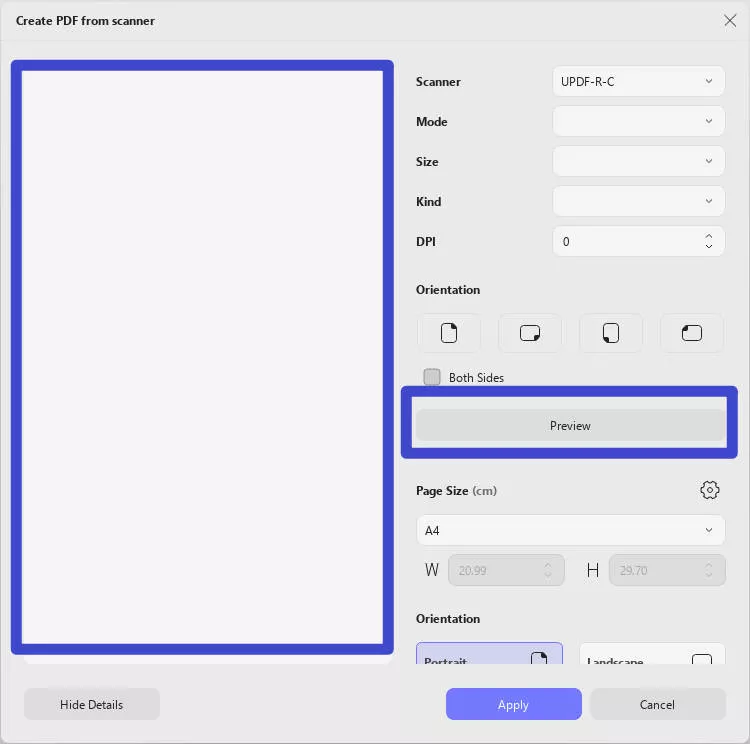
Step 5: Decide if you want to combine all pages into a single document and whether to perform OCR (turning the PDF into an editable format). Check the "Perform OCR after creation" option if you want an editable PDF; otherwise, it will be image-based. Once confirmed, click Apply. In the next window, choose whether to finish the scan or add more pages.
Step 6: Once the scanning is complete, UPDF will automatically open the newly created PDF.
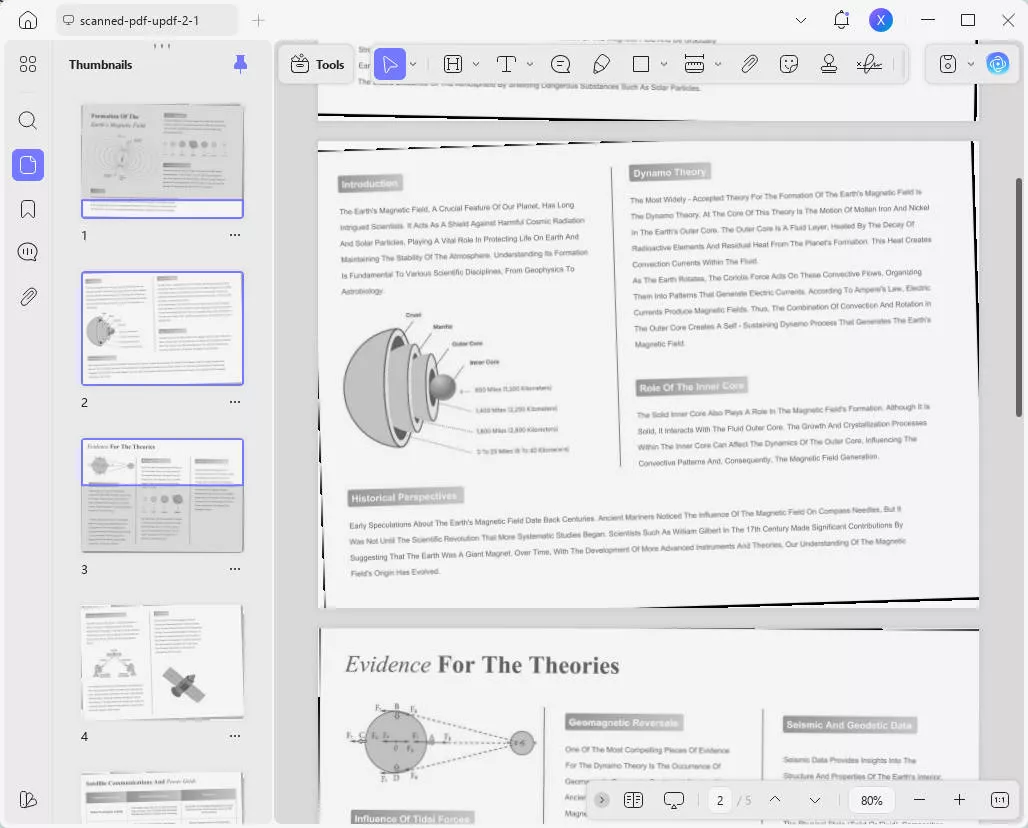
Method 2. Take Photos of Paper Documents and Convert Them to a Single PDF
With its image-to-PDF creation and OCR features, UPDF is an excellent choice for scanning small documents with fewer pages into a single PDF. Follow the steps below to get started.
Step 1. Download and install UPDF on your Windows 10/11 device.
Windows • macOS • iOS • Android 100% secure
Step 2. Open the software, navigate to the "Merge" in "Tools".
Step 3. Take photos of your paper document and transfer them to your Windows computer.
Step 4. Select your preferred photos from the gallery and put them into one PDF through "Add File".
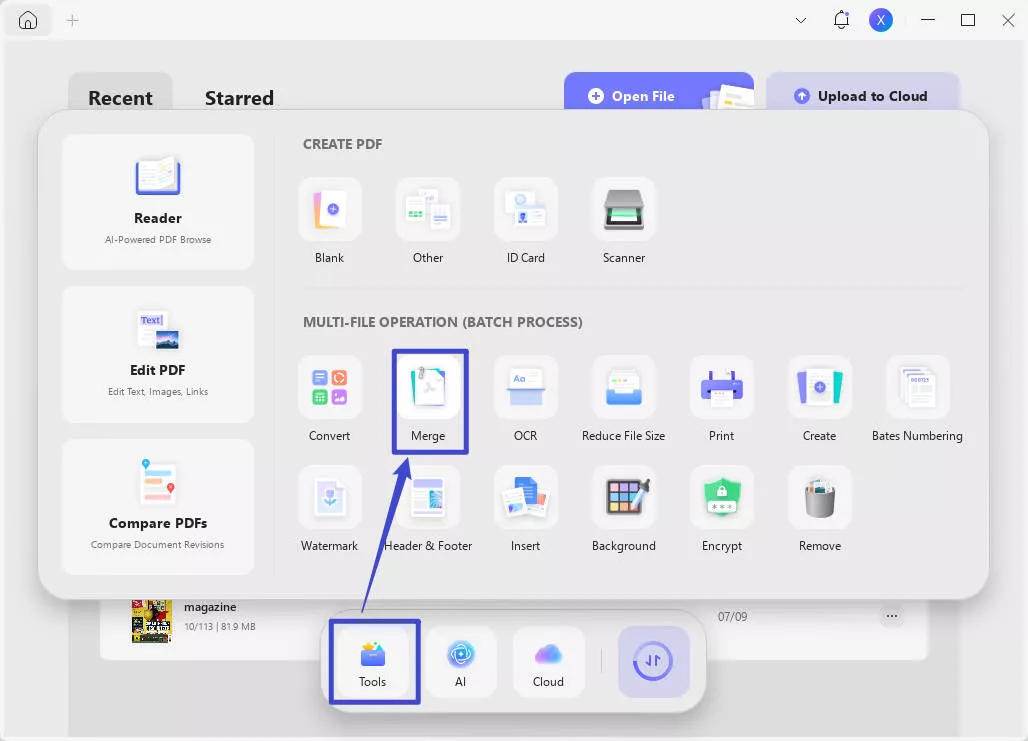
Step 6. UPDF will then automatically open the created PDF for you.
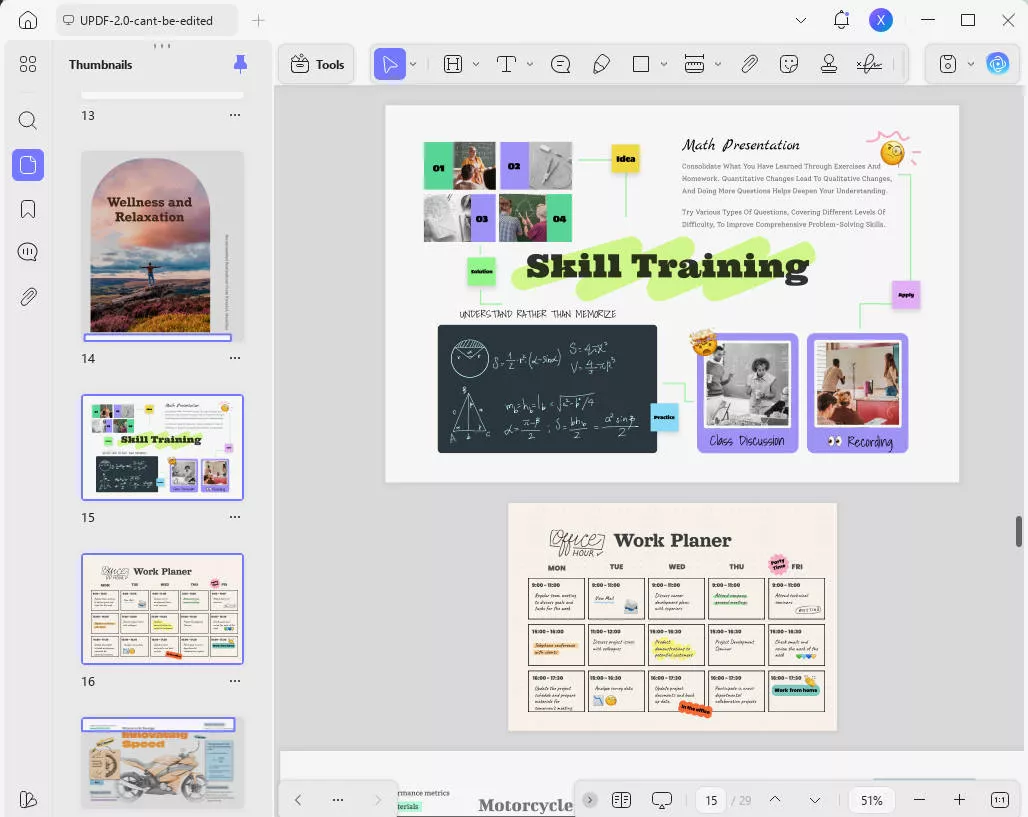
You can reorder, delete, extract, and split the converted PDFs. After using OCR to make a PDF editable, you can also edit, annotate, and convert the PDF according to your needs. Interested users can read Part 2 to learn the detailed steps.
Perks of Using UPDF:
- Customizable Settings: UPDF allows you to tailor the scan quality, file size, and color settings to suit your specific needs, ensuring you get exactly what you want.
- User-Friendly Interface: The intuitive interface makes it easy for anyone to scan documents, even if you're not tech-savvy.
- Time Efficiency: UPDF streamlines the scanning process, allowing you to scan and save documents in a matter of minutes.
UPDF isn't just limited to Windows—its iOS version offers similar powerful features. Whether you're on your iPhone or iPad, you can easily scan documents to PDF, annotate, and manage your files on the go. Download UPDF for iOS today and enjoy seamless document management across all your devices.
Interested users can also unlock all premium features and enjoy seamless cross-platform use of UPDF at a discounted price.
Windows • macOS • iOS • Android 100% secure
Part 2. Bonus Tip: How to Edit the Scanned PDF
Once you've scanned your document to PDF using UPDF, you might need to make edits to the scanned file. UPDF makes it easy to edit and scan to PDF Windows 10 with its powerful editing tools. Whether you need to correct text, add annotations, or insert images, UPDF has you covered. To learn more, check out how to edit a scanned PDF with UPDF.
Steps to Edit a Scanned PDF with UPDF:
- Open the Scanned PDF: Launch UPDF and open the scanned PDF file you want to edit.
- Select the OCR Function: Navigate to "OCR" in "Tools".
- Define Your Layout Settings: From Layout settings, you can choose "Editable PDF/Text and pictures only/Searchable PDF Only". For "Document Language," you should choose the language that matches the source document.
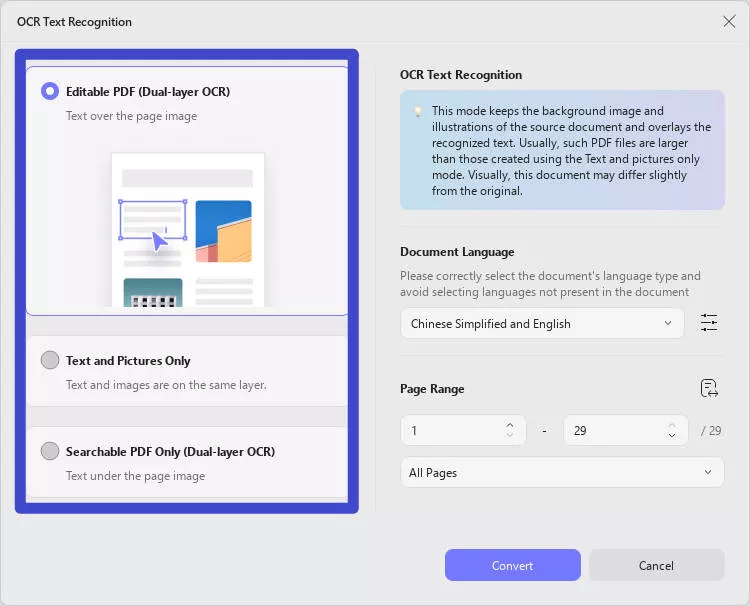
- After that, switch to the "Edit" in "Tools", from there, you can edit the text, images, and links in the converted PDF after the OCR.
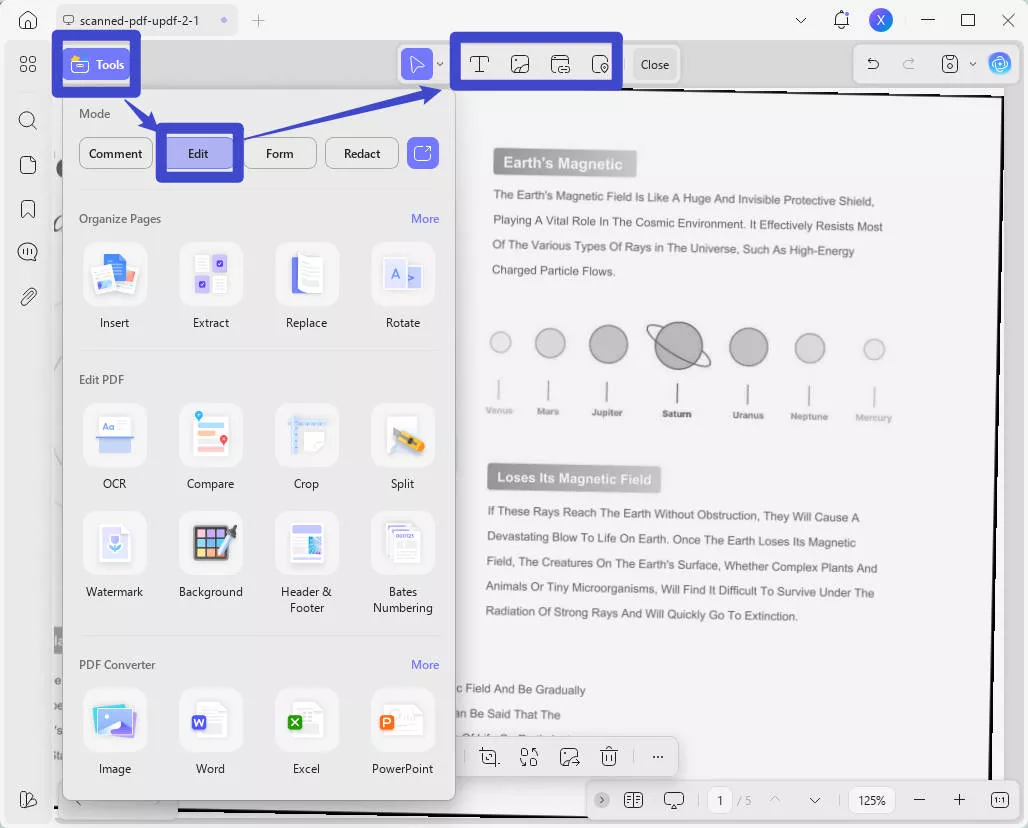
UPDF for Windows is more than just a PDF editor; it's a comprehensive document management tool. In addition to editing PDFs, UPDF allows you to create, convert, annotate, and secure your documents. Its user-friendly interface and robust features make it a must-have for anyone dealing with PDFs regularly.
To explore more PDF features in UPDF, watch the video below. Download UPDF for Windows today and experience the ultimate solution for handling your PDFs.
Windows • macOS • iOS • Android 100% secure
Part 3. FAQs About Scanning Documents to PDF
Can I Scan Documents to PDF on iPhone/iPad?
Yes, you can scan documents in PDF format on iPhone/iPad using UPDF for iOS. The app allows you to use your device's camera to scan documents and instantly convert them into PDF files, providing a seamless scanning experience.
How to Install a PDF Scanner in Windows 10?
To install a PDF scanner in Windows 10, you typically need to connect your scanner to the computer and use PDF software like UPDF, which supports scanning directly to PDF. UPDF provides an intuitive interface and customizable settings for scanning documents.
Wrapping it Up
How to scan to PDF Windows 10 with UPDF is a simple and efficient process that can greatly enhance your document management. Its user-friendly interface and comprehensive features make it a valuable tool for both personal and professional use. If you're looking for a reliable and intuitive solution for scanning to PDF Windows 10, UPDF is definitely worth considering.
 UPDF
UPDF
 UPDF for Windows
UPDF for Windows UPDF for Mac
UPDF for Mac UPDF for iPhone/iPad
UPDF for iPhone/iPad UPDF for Android
UPDF for Android UPDF AI Online
UPDF AI Online UPDF Sign
UPDF Sign Edit PDF
Edit PDF Annotate PDF
Annotate PDF Create PDF
Create PDF PDF Form
PDF Form Edit links
Edit links Convert PDF
Convert PDF OCR
OCR PDF to Word
PDF to Word PDF to Image
PDF to Image PDF to Excel
PDF to Excel Organize PDF
Organize PDF Merge PDF
Merge PDF Split PDF
Split PDF Crop PDF
Crop PDF Rotate PDF
Rotate PDF Protect PDF
Protect PDF Sign PDF
Sign PDF Redact PDF
Redact PDF Sanitize PDF
Sanitize PDF Remove Security
Remove Security Read PDF
Read PDF UPDF Cloud
UPDF Cloud Compress PDF
Compress PDF Print PDF
Print PDF Batch Process
Batch Process About UPDF AI
About UPDF AI UPDF AI Solutions
UPDF AI Solutions AI User Guide
AI User Guide FAQ about UPDF AI
FAQ about UPDF AI Summarize PDF
Summarize PDF Translate PDF
Translate PDF Chat with PDF
Chat with PDF Chat with AI
Chat with AI Chat with image
Chat with image PDF to Mind Map
PDF to Mind Map Explain PDF
Explain PDF Scholar Research
Scholar Research Paper Search
Paper Search AI Proofreader
AI Proofreader AI Writer
AI Writer AI Homework Helper
AI Homework Helper AI Quiz Generator
AI Quiz Generator AI Math Solver
AI Math Solver PDF to Word
PDF to Word PDF to Excel
PDF to Excel PDF to PowerPoint
PDF to PowerPoint User Guide
User Guide UPDF Tricks
UPDF Tricks FAQs
FAQs UPDF Reviews
UPDF Reviews Download Center
Download Center Blog
Blog Newsroom
Newsroom Tech Spec
Tech Spec Updates
Updates UPDF vs. Adobe Acrobat
UPDF vs. Adobe Acrobat UPDF vs. Foxit
UPDF vs. Foxit UPDF vs. PDF Expert
UPDF vs. PDF Expert


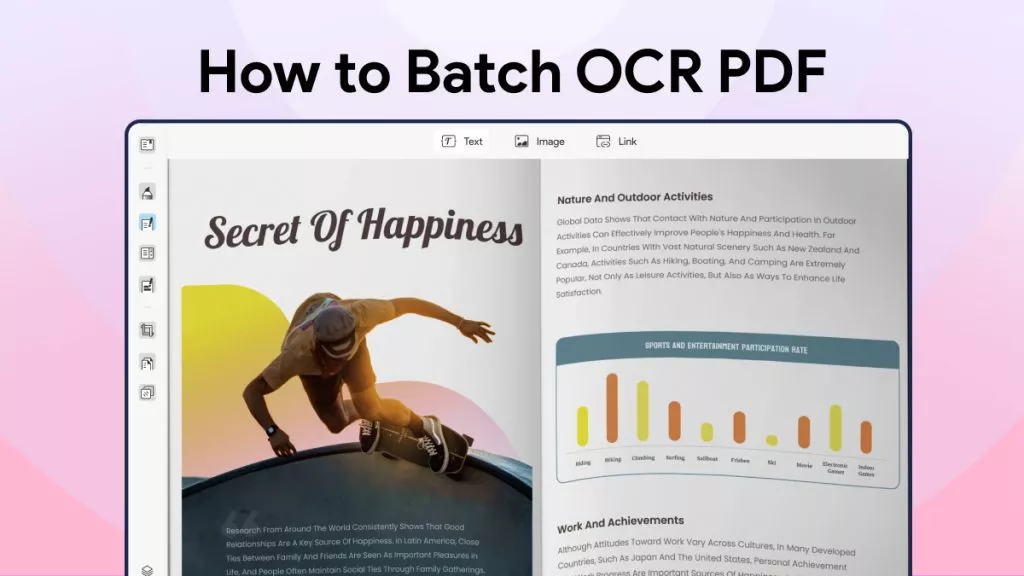





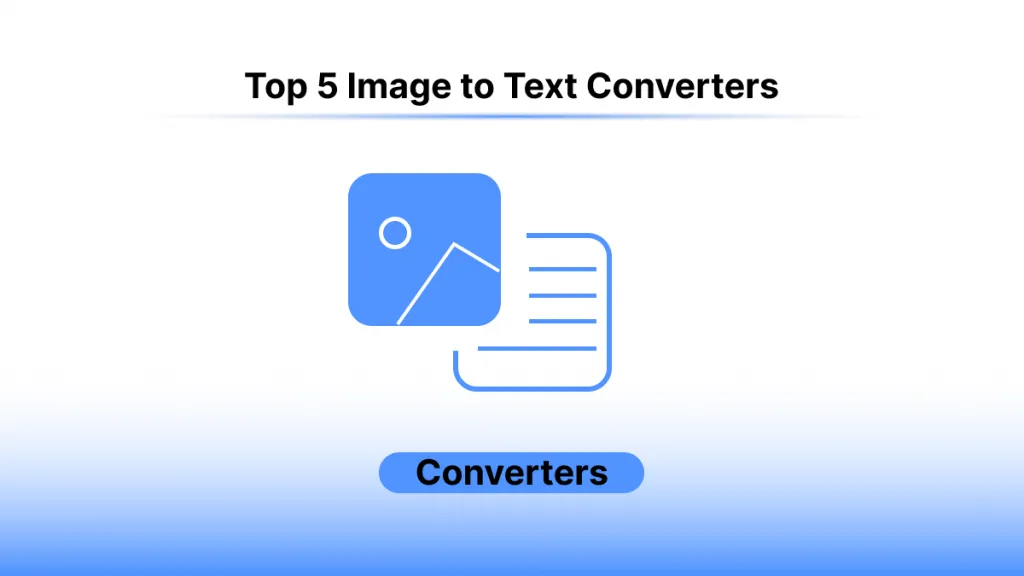
 Enrica Taylor
Enrica Taylor  Engelbert White
Engelbert White 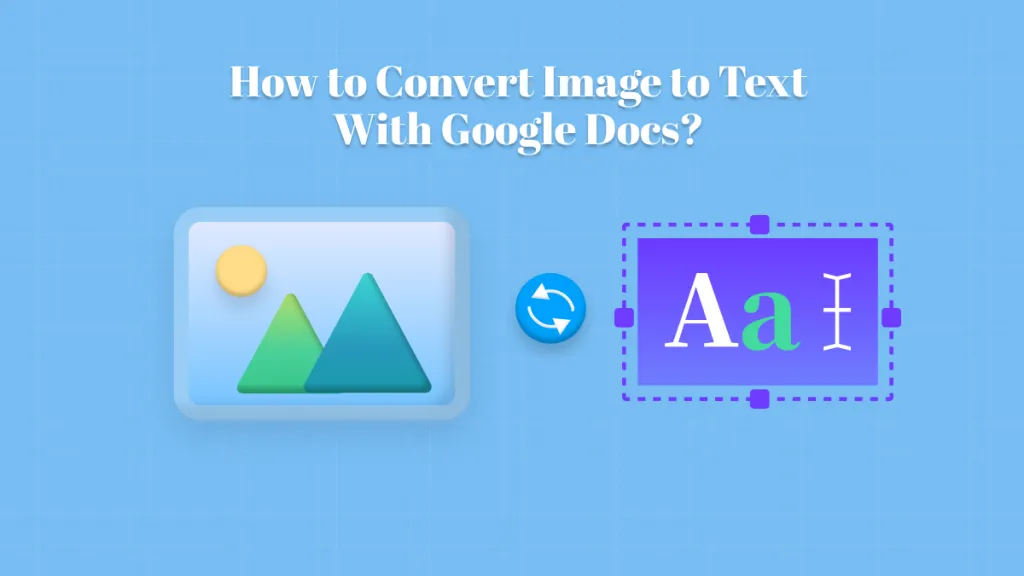
 Grace Curry
Grace Curry 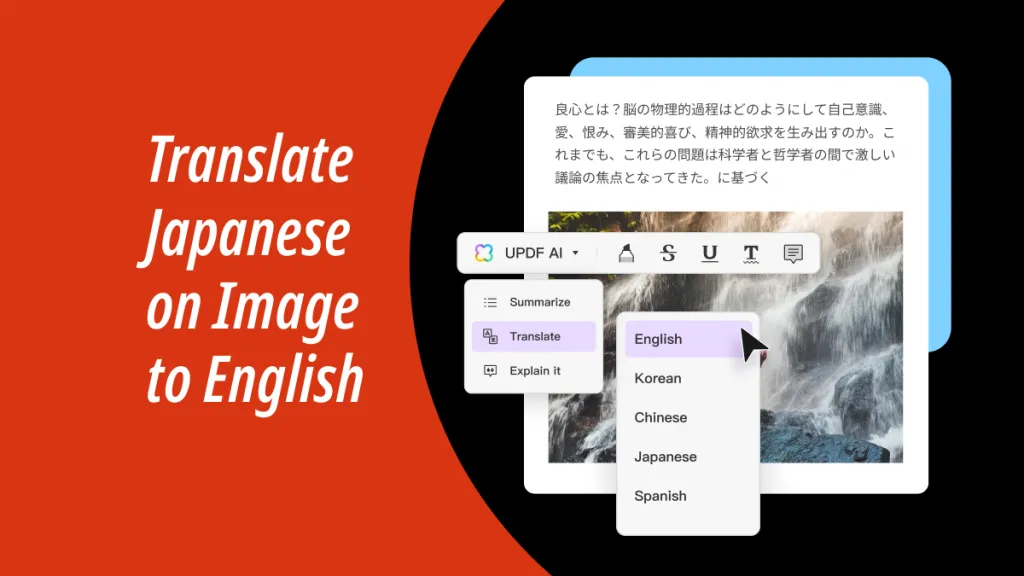
 Enola Davis
Enola Davis 
 Enya Moore
Enya Moore 